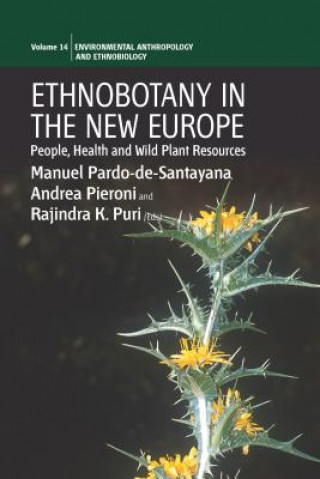
Kod: 04273036
Ethnobotany in the New Europe
Autor Pardo
"The text itself is useful, entertaining, and informative. In addition, each chapter is a model for modern ethnobotanical studies. Rather than simply cataloguing plant use, each researcher analyzes the historical, societal, econom ... więcej
- Język:
 Angielski
Angielski - Oprawa: Twarda
- Liczba stron: 408
Wydawca: Berghahn Books, 2010
- Więcej informacji o książce

Zobacz książki o podobnej tematyce
-

Ballgowns
163.79 zł -10 % -

Advances in Irrigation Agronomy
436.59 zł -

Russian Popular Culture
125.01 zł -4 % -
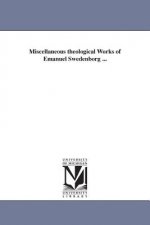
Miscellaneous theological Works of Emanuel Swedenborg ...
169.73 zł -

Qoheleth, Second Edition
286.49 zł -

Slow Travel and Tourism
270.37 zł
Bon podarunkowy: Radość gwarantowana
- Podaruj bon o dowolnej wartości, a my się zajmiemy resztą.
- Bon podarunkowy dotyczy całej naszej oferty.
- Możesz wydrukować elektroniczny bon z e-maila a następnie przekazać go obdarowanemu.
- Ważność bonu wynosi 12 miesięcy od daty wystawienia.
Więcej informacji o Ethnobotany in the New Europe
Za ten zakup dostaniesz 449 punkty
 Opis
Opis
"The text itself is useful, entertaining, and informative. In addition, each chapter is a model for modern ethnobotanical studies. Rather than simply cataloguing plant use, each researcher analyzes the historical, societal, economic, or political aspects relevant to changes in human plant usage. Thus, the authors provide a true ethnobotanical resource that can be instructive to academic audiences." * Choice The study of European wild food plants and herbal medicines is an old discipline that has been invigorated by a new generation of researchers pursuing ethnobotanical studies in fresh contexts. Modern botanical and medical science itself was built on studies of Medieval Europeans' use of food plants and medicinal herbs. In spite of monumental changes introduced in the Age of Discovery and Mercantile Capitalism, some communities, often of immigrants in foreign lands, continue to hold on to old recipes and traditions, while others have adopted and enculturated exotic plants and remedies into their diets and pharmacopoeia in new and creative ways. Now in the 21st century, in the age of the European Union and Globalization, European folk botany is once again dynamically responding to changing cultural, economic, and political contexts. The authors and studies presented in this book reflect work being conducted across Europe's many regions. They tell the story of the on-going evolution of human-plant relations in one of the most bioculturally dynamic places on the planet, and explore new approaches that link the re-evaluation of plant-based cultural heritage with the conservation and use of biocultural diversity. Manuel Pardo-de-Santayana is a Senior Lecturer of botany and ethnobotany at the Universidad Autonoma de Madrid. He has been researching contemporary and historical uses of Spanish medicinal and wild food plants, homegardens, and folk botanical taxonomies at the Royal Botanical Garden of Madrid (CSIC) and the School of Pharmacy (University of London) since 1995. Andrea Pieroni is an Associate Professor of plant biology and ethnobotany at the University of Gastronomic Sciences in Pollenzo, Northern Italy. He is the editor-in-chief of the Journal of Ethnobiology and Ethnomedicine and the President of the International Society of Ethnobiology. His research focuses on food and medical ethnobotany in the Mediterranean and in the Balkan areas, and among migrant communities and diasporas in Europe. Rajindra K. Puri is a Senior Lecturer in environmental anthropology and ethnobiology at the University of Kent at Canterbury, UK. While his primary research area is Indonesian Borneo, he also supervises M.Sc. and Ph.D. students who conduct ethnobotanical research in Europe. With Christian Vogl he co-organizes a summer field school in the Austrian Alps on methods in ethnobotany and works with the Global Diversity Foundation in Morocco, Malaysia and Namibia.
 Szczegóły książki
Szczegóły książki
Kategoria Książki po angielsku Society & social sciences Sociology & anthropology Anthropology
771.64 zł
- Pełny tytuł: Ethnobotany in the New Europe
- Autor: Pardo
- Język:
 Angielski
Angielski - Oprawa: Twarda
- Liczba stron: 408
- EAN: 9781845454562
- ISBN: 1845454561
- ID: 04273036
- Wydawca: Berghahn Books
- Waga: 676 g
- Wymiary: 236 × 153 × 27 mm
- Data wydania: 15. April 2010
Ulubione w innej kategorii
-

Revolt Against the Modern World
125.61 zł -4 % -

Crisis of the Modern World
84.11 zł -

Society Against the State
101.43 zł -5 % -

Trickster Makes This World
51.87 zł -23 % -

Purity and Danger
98.31 zł -5 % -

Gene Wars
118.05 zł -1 % -

Exercised
61.24 zł -15 % -

Consider The Lobster
48.95 zł -14 % -

Face and Mask
270.37 zł -

Combatting Cult Mind Control
98.51 zł -

Nordic Theory of Everything
52.37 zł -15 % -
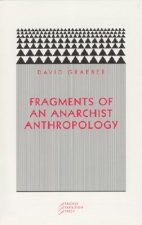
Fragments of an Anarchist Anthropology
57.51 zł -5 % -

Cambridge Encyclopedia of Human Evolution
440.01 zł -

Why Is Sex Fun?
47.34 zł -23 % -

Catching Fire
61.24 zł -15 % -

Five Roles of a Master Herder
79.47 zł -23 % -

Great Paleolithic War
257.98 zł -9 % -

Nature, Ritual, and Society in Japan's Ryukyu Islands
326.18 zł -

Dancing with the Dead
154.82 zł -

Revealing Lateglacial Landscapes
193.31 zł -

Our Origins
413.72 zł -5 % -

Bones of Contention
210.43 zł -

Interaction Ritual
285.78 zł -

Exploration and Discovery - Treasures of the Yale Peabody Museum of Natural History
105.26 zł -9 % -

Watching the English
51.87 zł -23 % -

Utopia Of Rules
77.26 zł -14 % -

Continuum Concept
61.24 zł -15 % -

Kill All Normies - Online culture wars from 4chan and Tumblr to Trump and the alt-right
57.31 zł -10 % -
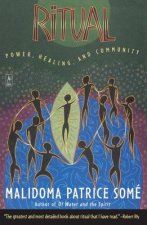
Ritual
65.77 zł -4 % -

Totem and Taboo
37.57 zł -5 % -

How Forests Think
141.33 zł -

Designs for the Pluriverse
138.50 zł -

When Languages Die
172.05 zł -

Protestant Ethic and Other Writings
93.58 zł -5 % -

Human Story
61.14 zł -23 % -

On Saudi Arabia
87.03 zł -13 % -

Limits to Medicine
67.58 zł -14 % -

Small Places, Large Issues
116.04 zł -5 % -

Think Like an Anthropologist
51.87 zł -23 % -

Sixty Million Frenchmen Can't Be Wrong
93.68 zł -5 % -
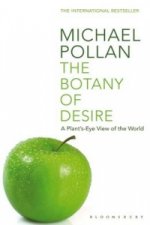
Botany of Desire
70.41 zł -23 % -

Direct Action: An Ethnography
125.61 zł -4 % -

Ayahuasca Visions
165.50 zł -5 % -

Alexander Dumas Dictionary Of Cuisine
310.87 zł -
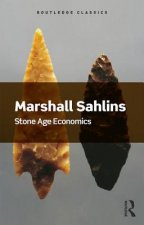
Stone Age Economics
98.31 zł -5 % -

Oxford Handbook of Language Evolution
225.44 zł -

Possibilities
97.50 zł -5 % -

On Kings
136.49 zł -

Memorial Museums
242.87 zł
zadowolonych klientów
Od roku 2008 obsłużyliśmy wielu miłośników książek, ale dla nas każdy był tym wyjątkowym.
Copyright! ©2008-24 libristo.pl Wszelkie prawa zastrzeżonePrywatnieCookies



 21 milionów książek
21 milionów książek Dostawa 10.99 zł
Dostawa 10.99 zł (32) 444 93 66 (8-15.30h)
(32) 444 93 66 (8-15.30h)